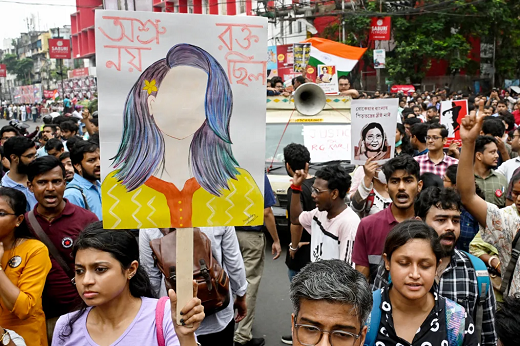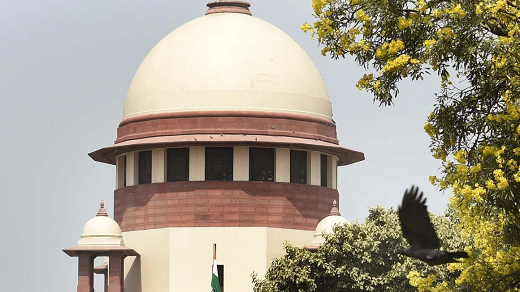Marital rape remains legal in India, as the government argues that criminalizing it would be "excessively harsh." This stance has frustrated activists ahead of a Supreme Court decision that could affect millions. India's law, a relic of British colonial rule, allows men to force sex on their wives if they are over 18, unlike most Western countries that have banned marital rape, such as Britain in 1991. Campaigners have long sought to change this, but the government contends that penalizing such actions could harm marital relationships. Despite acknowledging that non-consensual sex in marriage is wrong, the government believes existing laws on domestic and sexual violence are sufficient. Doctors and social activists march during a rally to condemn the rape and murder of a doctor in Kolkata on October 2, 2024. Dibyangshu Sarkar/AFP/Getty Images
Doctors and social activists march during a rally to condemn the rape and murder of a doctor in Kolkata on October 2, 2024. Dibyangshu Sarkar/AFP/Getty Images
Advocates for criminalization, like Ntasha Bhardwaj, argue that the government's stance reflects societal acceptance of sexual violence. Women often face challenges reporting marital rape, fearing disbelief or lack of legal support. While some legal options exist, such as restraining orders, these are often inadequate. Activists say criminalizing marital rape is a vital first step toward shifting cultural norms and empowering women trapped in abusive marriages. Recognizing marital rape, they argue, is crucial for advancing gender equality within marriage.







